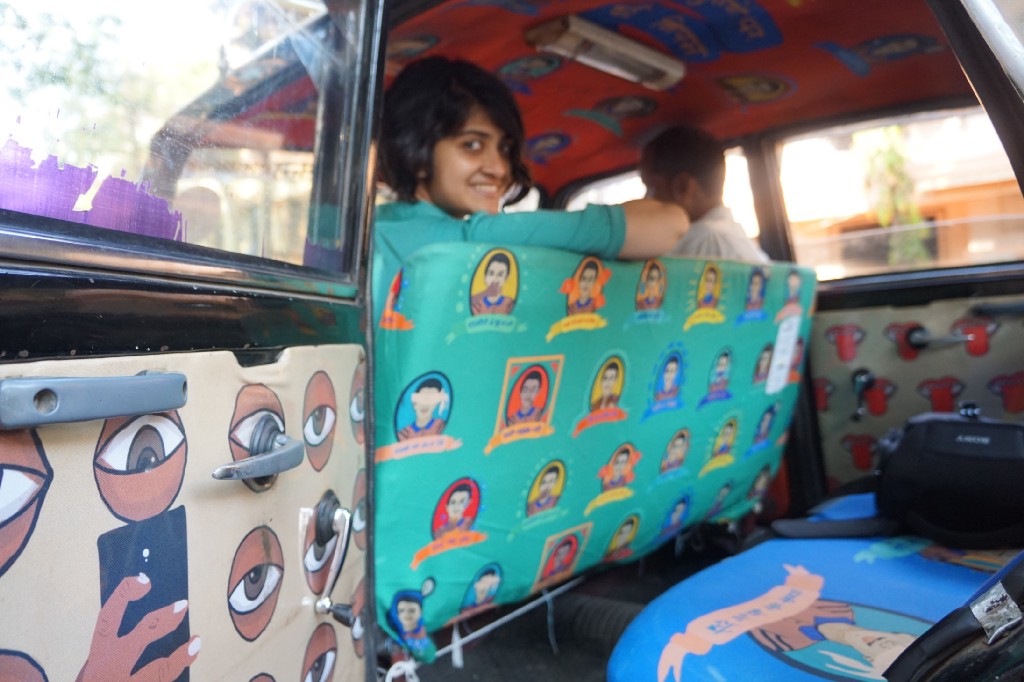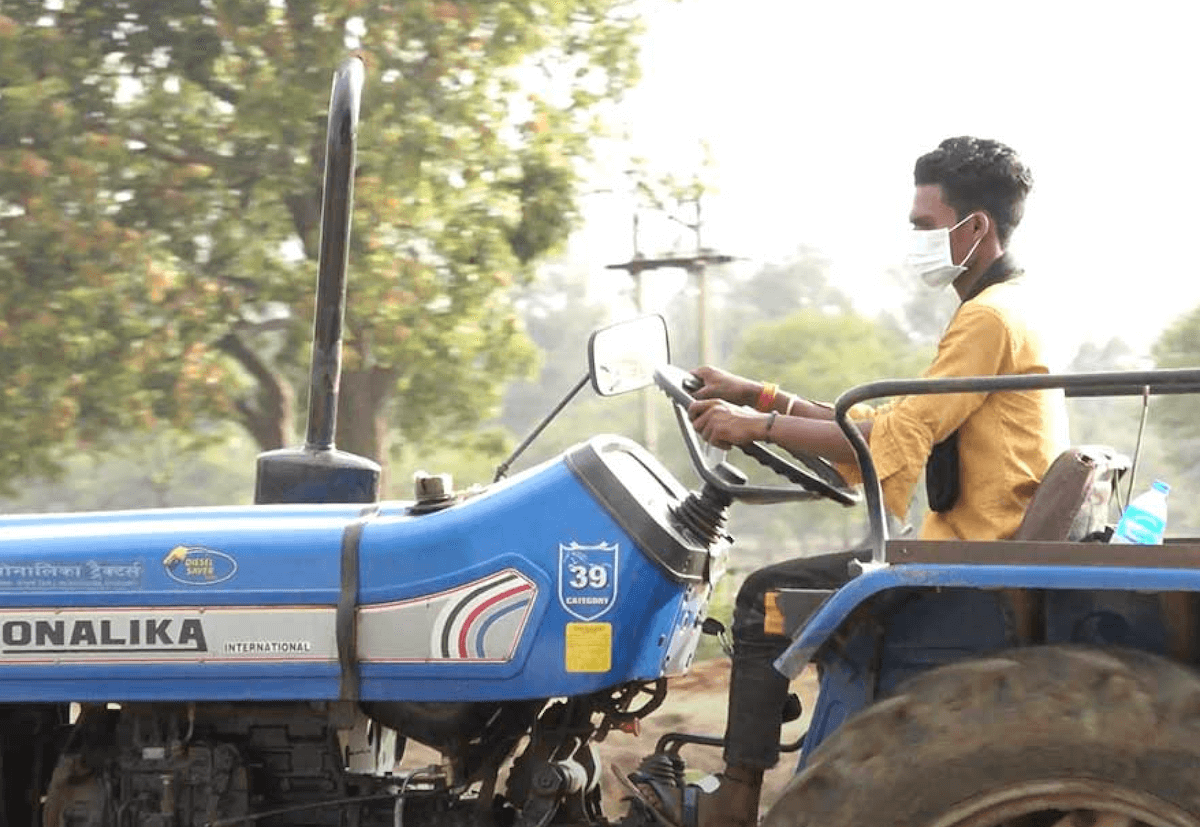Mumbai, India — Even in India’s most modern city, women must still navigate an oppressive set of taboos. The unwritten rules make them cautious of their movements and their attire, restrict their behavior and infect their thinking.
Roshnee Desai’s visual art challenges those social norms. Her works — short films, cartoons and even the upholstery in a Mumbai taxicab — all seek to get people thinking and talking about women’s rights and social issues.

Desai’s subject is the life of a modern woman in Mumbai, the heart of India’s corporate sector, headquarters to the country’s biggest finance firms and home to the Hindi film industry. The city’s liberal lifestyle encourages young women to be independent, partake in nightlife, and travel freely. Yet they still deal with men’s ogling, unsolicited gestures and catcalling.
The U.N.’s Sustainable Development Goal №5 calls for the end of “all forms of discrimination against all women and girls everywhere.” As a graphic designer and visual artist, Desai is keen on infusing digital art with real-world issues. “It’s about educating and engaging men as much as it is about women,” she says. “It’s not one or other.”
A former journalist with a master’s degree from the University of the Arts in London, Desai spent nearly a decade working at design firms and media companies. She recently left Culture Machine, one of Mumbai’s up-and-coming social media and design outfits (one of its brands is a women’s-oriented channel called Blush whose tagline reads “unapologetically and undeniably you”).
Desai recently left to launch her own design firm, called Local. Graphics, be it comedic or serious, is not just for boutiques, restaurants, and high-end brands, she says. Desai argues. “Design is something that’s very elitist in India,” she says. “Design needs to get out and be amongst the people, public.”
I spent an afternoon with Desai this spring at her home office. She provided a guided tour of projects she hopes her pieces will open the eyes of her fellow Mumbaikars, women and men alike.
The project was part of a Mumbai initiative, Taxi Fabric, to showcase the work of local designers enrich the daily travel experience.
For men who are accustomed to traveling freely in the city, Desai intends for the taxi to invoke empathy, forcing them to think as women do when going about town.

“There’s eyes also on the sides of the doors because men have a tendency to ogle women,” she says.

“I really wanted it to be a discussion point,” Desai says, “something that gets people talking, thinking, and especially male passengers who don’t know what it’s like to be a lady traveling in the city.”

Desai transformed an image of a woman, often seen outside ladies-only compartments of Mumbai trains, into a man. “It was a spin on something that’s so iconic and segregates women in transportation,” she says.

One cartoon depicts the challenge for women shopping at a corner store for tampons and pads. The products still come in inconspicuous black plastic bags — normal for a country that’s still squeamish about menstruation.
In the cartoon, the clerk wraps the purchase in ever larger and more secure box, ending in a giant trunk. “We overdid it with this to make the point,” Desai says.

“‘Seriously?’ used to be my response as well,” Desai says, discussing items not allowed inside a Hindu temple — including a menstruating woman. Frighteningly these taboos are not perpetuated by just men, but also women of the household. “The gods themselves in some of our temples are women,” the artist says. “It makes no sense.”

“It’s not ok to just hang your bras and underwear for the world to see,” Desai says. Women’s intimate apparel is largely not discussed in Indian society, and a woman’s undergarments are not meant to be visible to the public — even when drying on a clothesline. In one comic, a maid (bai, in Hindi) calculates the precise angle to hang bras so they can’t be seen by passersby. This power makes her a superhero: “Super Bai.”
THE FILM: Stop Motion Graphics Illustrate The Ride Home For Women
Desai’s first experiment in moving graphics was a short film, called “Cover Up.” It was featured at the Asian American Film Festival in 2015. At the Women in Film and Television American Consulate Awards, Desai was named best female director.
The two-minute film uses animated graphics and a voiceover to explore the thoughts of an Indian woman going home late at night: cautious about her dress, making sure she’s not revealing her neckline and ever prudent to ensure she’s not being followed home.
“These are the little things that women think about and do everyday, out of fear of being indecent in public,” Desai says.
https://medium.com/media/3cedb9d322d7133683f7efdb102ac9ab/href
ImpactAlpha’s Women Rising in India series showcases people and projects that are advancing the global Sustainable Development Goals.











